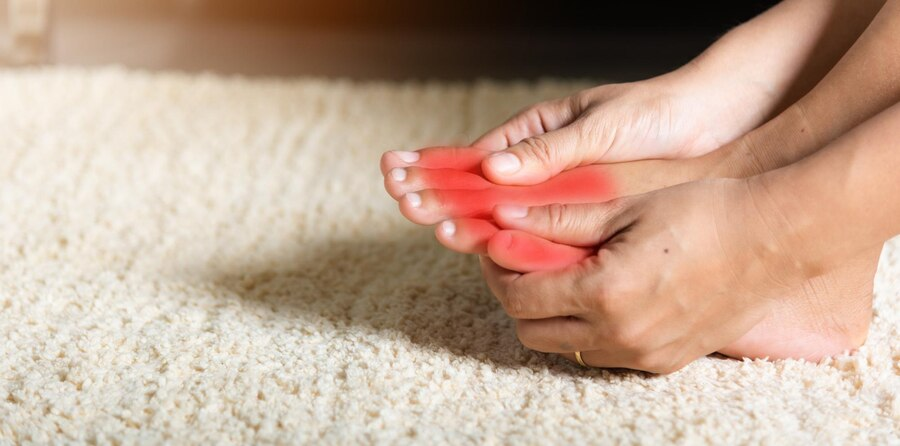Poor circulation may cause:
- Numbness and tingling in the hands and feet
- Cold hands and feet
- Fatigue or tiredness
- Dizziness
Not only are they uncomfortable to live with, but watch out as these could be the signs of poor blood flow in your body.
Poor circulation may cause:
Not only are they uncomfortable to live with, but watch out as these could be the signs of poor blood flow in your body.
Blood delivers oxygen and nutrients to different parts of the body. Blood also brings waste products such as carbon dioxide away to be disposed of. When the overall blood circulation in the body is poor, blood flow, especially to the hands and feet, is often affected. The balance between the needs for nutrients and the riddance of waste products in the extremities is hence not met.
As a result, numbness and tingling sensations in the hands and feet are typically signs that there are restrictions in blood flow and not enough blood reaches your limbs1. It will present as a sensation of pinpricks and needles which is uncomfortable and may affect functions.

Blood regulates the body temperature and carries warmth to each and every body part2. When sufficient blood flow cannot reach the hands and feet, they will feel cold to touch and the temperature of the skin fluctuates3. While it may not sound as annoying as other symptoms, it is a sign that something is off with the blood circulation and you ought to do something about it.


Oxygen, nutrients and hormones are transported throughout the body via blood circulation. These are essentials for our body to function normally and are guaranteed by an efficient blood circulation system to the lungs, heart and muscles. Higher amounts of oxygen and nutrients in the bloodstream are closely tied with increased energy levels to keep you sharp and focused.
Therefore, it is no wonder that a disruption in blood flow and delivery of its contents can cause symptoms like fatigue and tiredness4, 5, which definitely do not feel good.
A drop in blood flow can also cause dizziness6. For that reason, maintaining a healthy rate of blood flow is important to help keep the dizziness away by feeding your body the necessary bits and pieces required for its best working order.

You can improve your blood circulation easily by making some simple changes to your lifestyle, such as:
Other than regulating body temperature, transporting oxygen, nutrients and hormones, as well as discarding waste products, blood has other functions too. The defenders against bacteria and infections come from the immune system in the blood. Good blood health coupled with smooth blood flow ensures that you can effectively fight off and avoid diseases and sicknesses in different parts of the body7. In other words, good blood circulation is vital in keeping you in good health and wellbeing.

All in all, it is essential to report symptoms of poor circulation to a doctor, to receive appropriate treatment, and to maintain a healthful lifestyle.
The information, including but not limited to, text, graphics, images and other material contained in this article is intended for your general knowledge and informational purposes only. No material on this site is intended to be a substitute for professional medical advice, diagnosis or treatment for specific medical conditions. You should not use this information to diagnose or treat a health problem or disease without consulting with a qualified healthcare provider. Always seek the advice of your medical doctor or qualified healthcare provider with any questions you have regarding a medical condition or treatment before undertaking them, and never disregard professional medical advice or delay in seeking it because of something you have read in this article.
References